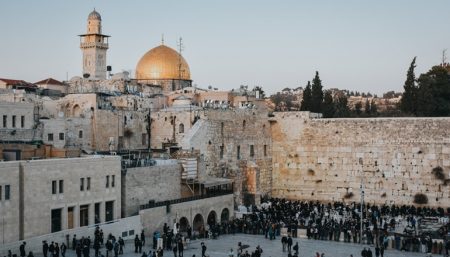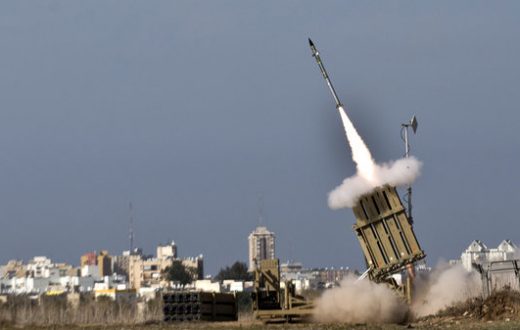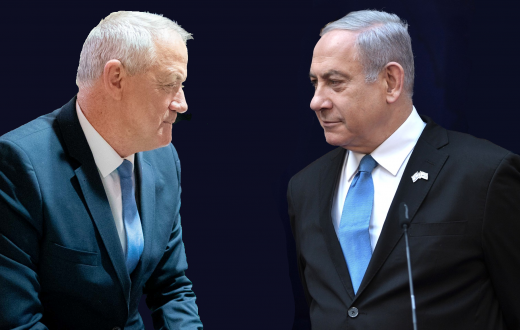Anyone who believes a few walls can divide the Jews and Arabs of Jerusalem has clearly not spent much time in the capital in recent years. by Moshe Arens
Some advocates of the two-state solution – who are really calling for the separation of Jews from Arabs in the Land of Israel – are pointing with ill-concealed glee at the recent wave of violence as proof that Jews and Arabs cannot live in proximity with one another. Jerusalem must be divided they say, so the Jerusalem Arabs will be kept away from the city’s Jewish residents. According to them, this is not going to be difficult. One wall here, another one there, and the job is done.
In effect, it is claimed, Jerusalem is already divided: all that is needed are a few more walls to prevent Arabs from crossing into Jewish areas. Those advocating such measures – and who see in them a solution to the intermittent violence that plagues Jerusalem, and part of the solution to the Israeli-Palestinian conflict – must not have visited Jerusalem in recent years. Those who live in the city know that the lives of Jerusalem’s Jewish and Arab residents are closely intertwined.
Hail a taxi in the city and it is just as likely your driver will be Arab as Jewish. Get on a bus, and the driver may well be Arab. Go to a hotel or a restaurant and many of the staff are likely to be Arabs. Go to Hadassah hospital in Ein Karem, or the one on Mount Scopus, and you will find that many of the doctors are Arab, many of the technicians are Arab, much of the staff and half the patients are Arab. These are Arab residents of Jerusalem – or Jerusalem Palestinians, as some prefer to call them – residing in the Arab sections of the city and working in the capital’s Jewish sections.
A Question of Perspective
Some may view this situation as the positive development of a pattern of relationships that have formed between Jerusalem’s Jewish and Arab residents over the past 50 or so years. Others, meanwhile, see it as a curse that needs to be torn apart by the erection of walls and the consignment of Jerusalem’s Arab population to live beyond the pale of Jewish settlement, and letting them fend for themselves there, controlled by Hamas, Islamic State, or whoever.
If you believe that Jews and Arabs must learn to live together in this land, within the State of Israel, and in Jerusalem – and maybe in the rest of the Land of Israel, too – the integration of Israel’s Arab population into the economy and Israeli society is an achievement, and what has happened in Jerusalem in recent years is a harbinger of better days to come. If you believe that Jews and Arabs cannot live together in peace, you wish that these developments can still be reversed – and then, like it or not, you are in the same camp as Yisrael Beiteinu chairman Avigdor Lieberman, Ra’ad Salah (head of the northern branch of the Islamic Movement in Israel) and Joint Arab List MK Jamal Zahalka.
A Question of Perspective
Unfortunately, the entry of Jerusalem’s Arabs into the economy of Jewish Jerusalem has not been accompanied by a parallel investment in the physical conditions of the city’s Arab neighborhoods. Those working in Jewish Jerusalem during the day have been returning in the evenings to the same squalid conditions that existed before the Six-Day War – only now they are more crowded.
That the Shoafat refugee camp, inherited by Israel from Jordan in 1967, has not been rebuilt as a neighborhood that would provide reasonable conditions for the families living there is a blot on the record of successive Israeli governments and Jerusalem municipalities. It is home to some 100,000 Palestinians living in squalor and misery and, as should have been expected, is a breeding ground for crime and terrorism. Government policy in dealing with these neighborhoods for the past 48 years can rightly be called criminal neglect.
Of course, there are many causes for the wave of terrorism that has emerged from these neighborhoods in recent weeks. But there is little doubt that the miserable living conditions prevalent there are prominent among them.
Is the two-state solution the answer to this violence? Recent polls among Jerusalem’s Arab population indicate that the majority would prefer to continue living within the borders of the State of Israel, even if a Palestinian state were to be established. But, one might add, not under the present living conditions.







